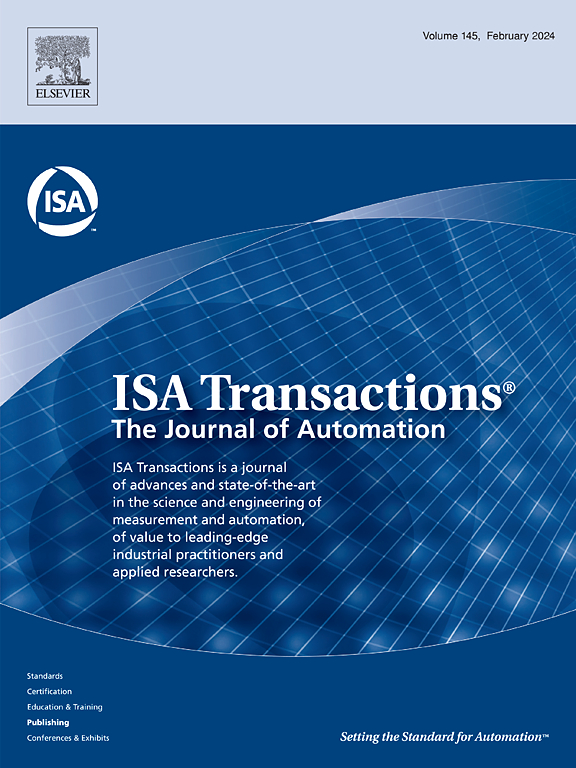A stabilizing solution for the control system parameters tuning problem
IF 6.3
2区 计算机科学
Q1 AUTOMATION & CONTROL SYSTEMS
引用次数: 0
Abstract
Dynamic control systems present significant challenges in parameter tuning due to their complex behaviors, various performance requirements, and wide application domains. Existing strategies often rely on restrictive assumptions or are obtained sequentially, resulting in poor stability and performance. To overcome these limitations, this study introduces a developed static output feedback framework that stabilizes and simultaneously tunes multiple parameters in various dynamic control systems. The proposed methodology combines a systematic analytical procedure with a software-based implementation, enabling proper performance under varying system types, orders, and parameter sets. Indeed, the introduced tuning approach enables the simultaneous adjustment of all control system parameters, accommodating the designer’s preferences regarding the number of parameters to be tuned and the control objectives. Its effectiveness and efficiency are demonstrated through extensive simulations and real-time experiments in aerospace, robotics, and electric systems. Results indicate that this approach covers significant system variations without compromising stability or performance, distinguishing it from the conventional tuning methods. These outcomes offer new insights into the importance of simultaneously retuning control system parameters due to technical and economic issues. It is worth emphasizing that the proposed approach provides a comprehensive plan for designing or tuning controller parameters simultaneously and extends the applicability of static output feedback control theory to a wider range of dynamic control systems.
控制系统参数整定问题的稳定解
动态控制系统由于其复杂的行为、不同的性能要求和广泛的应用领域,在参数整定方面提出了巨大的挑战。现有的策略往往依赖于限制性的假设或顺序获得,导致稳定性和性能差。为了克服这些限制,本研究引入了一种开发的静态输出反馈框架,该框架可以稳定并同时调整各种动态控制系统中的多个参数。所提出的方法将系统的分析过程与基于软件的实现相结合,在不同的系统类型、顺序和参数集下实现适当的性能。事实上,引入的调谐方法能够同时调整所有控制系统参数,适应设计师对要调谐的参数数量和控制目标的偏好。它的有效性和效率是通过广泛的模拟和实时实验在航空航天,机器人和电力系统证明。结果表明,该方法涵盖了显著的系统变化而不影响稳定性或性能,将其与传统的调优方法区分开来。这些结果为由于技术和经济问题而同步返回控制系统参数的重要性提供了新的见解。值得强调的是,所提出的方法为同时设计或整定控制器参数提供了一个全面的方案,并将静态输出反馈控制理论的适用性扩展到更广泛的动态控制系统。
本文章由计算机程序翻译,如有差异,请以英文原文为准。
求助全文
约1分钟内获得全文
求助全文
来源期刊

ISA transactions
工程技术-工程:综合
CiteScore
11.70
自引率
12.30%
发文量
824
审稿时长
4.4 months
期刊介绍:
ISA Transactions serves as a platform for showcasing advancements in measurement and automation, catering to both industrial practitioners and applied researchers. It covers a wide array of topics within measurement, including sensors, signal processing, data analysis, and fault detection, supported by techniques such as artificial intelligence and communication systems. Automation topics encompass control strategies, modelling, system reliability, and maintenance, alongside optimization and human-machine interaction. The journal targets research and development professionals in control systems, process instrumentation, and automation from academia and industry.
 求助内容:
求助内容: 应助结果提醒方式:
应助结果提醒方式:


